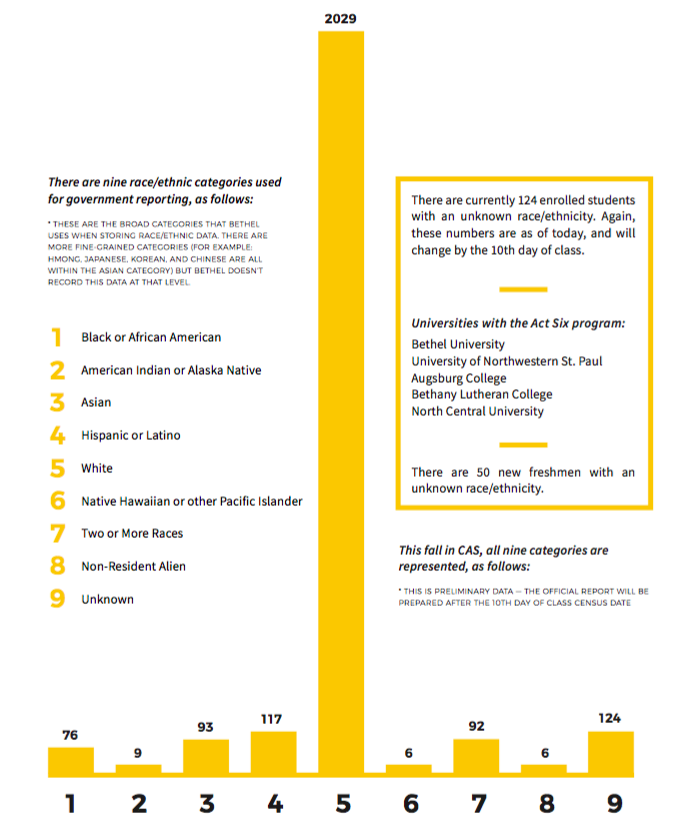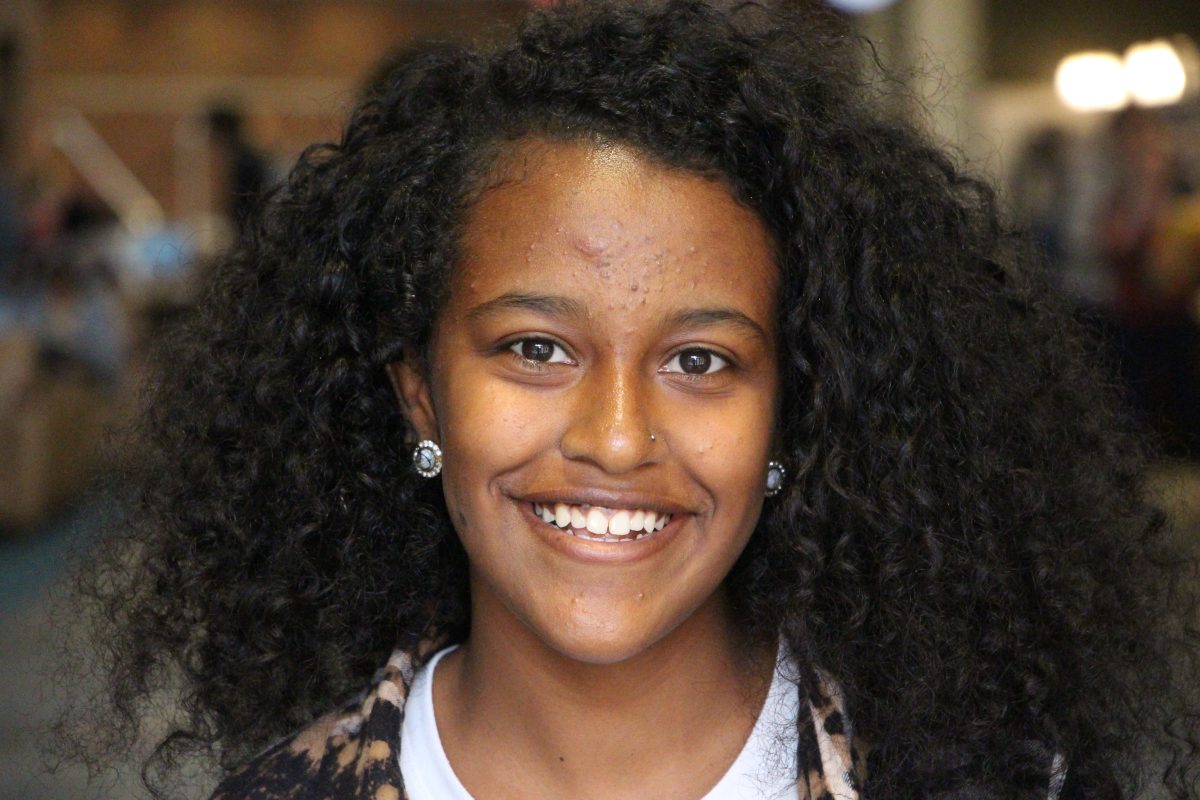A program designed to recruit and support young leaders is a main contributor to increased diversity within the Bethel student population.
By Hannah Toutge
Meti Regassa sits at a table in front of the Royal Grounds, head bent over her open laptop, putting finishing touches on homework. A first-year student at Bethel, Regassa is a recipient of the Act Six Scholarship, the only award offering full-tuition scholarships for urban leadership, according to the Act Six page on Bethel’s website.

Act Six is in it’s third year at Bethel under the Intercultural Student Programs and Services department. The scholarship is named after the biblical passage, Acts 6, which describes how seven individuals were chosen to act as leaders to ensure their community was properly cared for.
The program selects young men and women who hold promise of becoming leaders in their communities, especially students from diverse and urban settings.
“It’s not just a scholarship, it’s equipping and empowering students to be leaders,” said Jenny Lee, Bethel’s admissions counselor for first impressions.
Colleges admit students to the program in the hopes that when Scholars graduate, they’ll use their strengthened leadership skills to better communities similar to the ones they came from.
“It’s not about leaving our neighborhoods, getting an education, and running away to the suburbs,” Regassa said. “We’re going to go back and invest in the communities that we came from the way (Act Six) invested in us.”
Regassa grew up in Minneapolis and attended Edina High School. While at EHS, she was involved in Black Student Union, Multicultural Group, and community service work. Now a nursing major at Bethel, she’s looking forward to a future of hard work and self-improvement in order to better the world around her.
“I want to change my community and have some sort of impact in the lives of people around me,” Regassa said.
Like Regassa, Breck School graduate Chemeer St. Urbain was also involved in numerous service-oriented programs in high school, such as Reading Partners and Community Bridges. Chemeer was also the yearbook editor and contributed to the school newspaper.

As an international business major, St. Urbain strives for a career in international affairs, working with different international organizations and nonprofits.
As optimistic and driven as these scholars are, participating in a program like Act Six is not without it’s challenges. Besides the demanding coursework – Act Six has its own curriculum and homework assigned to students in the program on top of their regular classes – scholarship recipients report feeling anxious despite their success.
“I’m afraid to tell people that I’m a Scholar. I feel like people will think I don’t deserve to be here because I’m on such a big scholarship,” Regassa said. “It’s not just the way I look. We’re all good students.”
Lee agrees: the scholarship is not based off of ethnicity, a presupposition that supports a stigma that she is determined to change.
“It’s really based off of their merit and work,” Lee said. “We’re looking for high-caliber, high-quality students.”
In recent years, the majority of high school graduates have been first-generation college students and students from urban areas. Act Six is a critical program for providing resources for students who otherwise might not even apply to college.
“You cannot live in a perpetual cycle of poverty and minimal education,” Lee said. “The market (trend) needs to change.”
In a predominantly caucasian setting like Bethel, it’s important to welcome students from diverse backgrounds to better the experience of the greater community.
“I think (Act Six) recognizes that (Bethel) isn’t the picture of what the Kingdom is going to look like,” Lee said. “It won’t be all white, scandinavian students…By having these scholars here, it exposes more of what’s out there.

”

![Nelson Hall Resident Director Kendall Engelke Davis looks over to see what Resident Assistant Chloe Smith paints. For her weekly 8 p.m. staff development meeting in Nelson Shack April 16, Engelke Davis held a watercolor event to relieve stress. “It’s a unique opportunity to get to really invest and be in [RAs’] lives,” Engelke Davis said, “which I consider such a privilege.”](http://thebuclarion.com/wp-content/uploads/2024/05/041624_KendallEngelkeDavis_Holland_05-1200x800.jpg)















